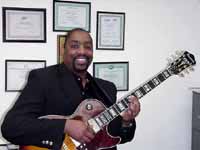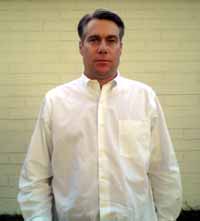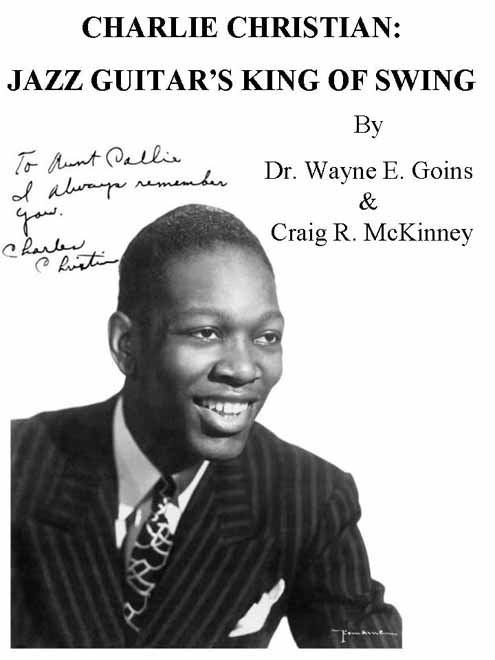MANHATTAN ó It's incredible sometimes how the stars and moon align and things just fall into place.

Unbeknownst to him, Craig McKinney, an estate attorney, was just down Interstate 70 in Topeka, who had been sitting on a gold mine of information about Christian for more than 25 years. Included in his collection are rare interviews with one of Christian's older brothers, Clarence. Through an amazing stroke of luck the two came together.

"I told him 'if you give me your material I'll realize your dream of having a book written on Charlie Christian,'" Goins said.
The resulting collaboration is what Goins refers to as "by far the most thorough, comprehensive collection of research on Christian," who played with the "The King of Swing," Benny Goodman, in his orchestra.
Christian was one of the pioneers of bebop guitar.
According to David H. Rosenthal's book, "Hard Bop," bebop was "characterized by fast tempos, complex harmonies, intricate melodies, and rhythm sections that laid down a steady beat only on the bass and the drummer's ride cymbal. Bebop tunes were often labyrinthine, full of surprising twists and turns. All these factors -- plus the predominance of small combos in bebop -- set the music apart from the swing bands of the 1930s."
"Charlie is known as probably one of the most important people -- if not the most important person -- to play bebop before bebop was even called bebop" Goins said of Christian. "Bebop 'officially' started in 1945 generally speaking in terms of historical jazz eras, but Charlie Christian was playing the bebop style as early as 1939 in Oklahoma City, where he was discovered by Columbia Records producer John Hammond."
According to Goins, by 1941 Christianís guitar style had reached an even more advanced stage. After a four-year period Goins has coined the 'pre-bop' era, the bebop era was in full swing when jazz greats Kenny Clarke, Charlie Parker, Dizzy Gillespie, Thelonious Monk and others "started doing their thing and the jam sessions were caught on wax" at the legendary New York jazz club, Minton's Playhouse. During that time, Christian would play with Goodman during the day and evenings, but would go down to Minton's late at night to "blow off steam."
"It was all recorded illegally, but that's how we know the music actually happened," Goins said. "Jerry Newman captured the tunes on acetate discs in 1941 and now they're on CDs."
The book, "Charlie Christian, Jazz Guitar's King of Swing," is scheduled to be released this summer. It also includes portions of rare interviews with Christian's recently deceased daughter, Billie Jean Christian Johnson, as well as her mother, Margretta Christian Downey.
"That's really like the big three," Goins said of Christian's family members, "so between the two of us we had it covered. Up to that point Billie Jean or Margretta had not done a lot of talking to anyone. They opened up to me big time and Clarence opened up to Craig years ago. "

The research took Goins and McKinney to Christian's hometown of Oklahoma City, Kansas City and New York, conducting interviews, digging through archives, private collections and harvesting a goldmine of research and rare artifacts.
"Part of what makes this book great is that (McKinney) has material that nobody had seen before," Goins said. "I could sense innately it was out there somewhere but I didn't know where it was."
According to Goins, others have tried to tell the story of Christian but have been unable to do so because of several gaps scattered throughout Christian's timeline. In this labor of love, Goins and McKinney were able to piece together a detailed account of Christian's whereabouts, along with intimate details regarding the guitarist's personal andprivate life. Goins admits that he could have done the book without having found McKinney, but the final product would not have been nearly as good.
"It's just an incredible story the way the two of us met," Goins said.
"The project would have been hard to do and quite incomplete without the knowledge and expertise he brought to the table. But then again, if Craig McKinney hadn't met me, he might still be sitting on all that great stuff. Together we make a great team."